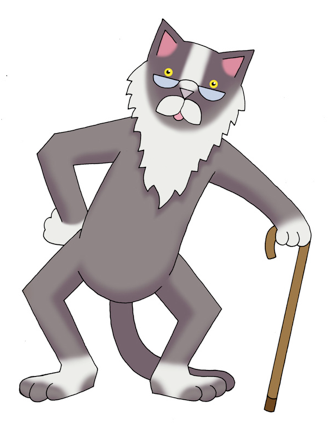
Life passes quickly. The frolicking baby brought home just a few short years ago matures into a mellow senior in what seems like the blink of an eye. Given our pets have an average lifespan of 10-18 years; they age more quickly than we do with an average lifespan of 75-85years. This is where the “1 human year equals 7 pet years” theory comes into play. Did you know that cats and small dogs are regarded as seniors by 8 years of age and large breed dogs by 6 years of age?
Senior pets have different care requirements than those of younger animals. This fact probably doesn’t come as a surprise to anyone. As your family pet ages there are two main groups of changes that arise.
- The first includes the age related changes that you may notice at home, for example hearing loss, loss of sight, reduced activity.
- The second change is pathological and of greater health consequents, however it is less obvious to you, the primary care giver.
These changes are numerous and include heart, kidney and liver disease, diabetes, hormonal issues, incontinence, thyroid abnormalities, obesity, tumors and arthritis. Some of these processes are preventable all together and they are all treatable or manageable. The earlier these changes are detected, the better the treatment outcome.
What can you do to help keep your precious pet healthy in their senior years? Here are some tips:
- Veterinary checkups every 6 months – While this seems frequent, this only equates to us having a check-up about every 3 ½ years at the doctor. Pets cannot tell us when they are beginning to feel slightly unwell and these checkups allow early detection.
- A routine blood profile at least 12 monthly – Many internal diseases can be detected by changes in blood tests way before your pet is showing any signs. The sooner we identify a problem, the sooner we can start to manage it or better yet, cure it!
- Good nutrition – The nutritional needs of an older pet are different to a young animal. Obesity is linked with an increased chance of many different diseases as well as affecting joints. A consultation to discuss diet with one of our trained nurses is complimentary, but needs to be pre booked.
- Dental Care – Many aged dogs and cats will develop dental disease. Dental disease is fortunately one of the disease processes we can readily cure. Dental health is something we assess at your pet’s 6 monthly health checks.
- Regular graduated exercise – Keeping active is very important for our pets. Short walks tailored to your pets ability can help keep joints mobile and help with avoiding weight gain
- Environment management – Suddenly changing furniture, getting new pets and having new people come and stay can stress out an old pet, particularly if they are vision impaired.
- Management of arthritis and joint pain – A pet with arthritis is a pet in pain. We can do a lot to manage arthritis and a holistic approach can be tailored to your individual pet. Treatments include: Non steroidal anti inflammatory drugs, Pentosan injections, in food nutraceuticals such as glucosamine/chondroitin (e.g. Joint guard) and epitaalis (4cyte) and managing them with a modified exercise program or physiotherapy.
- Provide your pet with special accommodations – For instance, those with arthritis might benefit from soft bedding in the form of a special bed and somewhere warm to sleep especially on those cooler nights.





